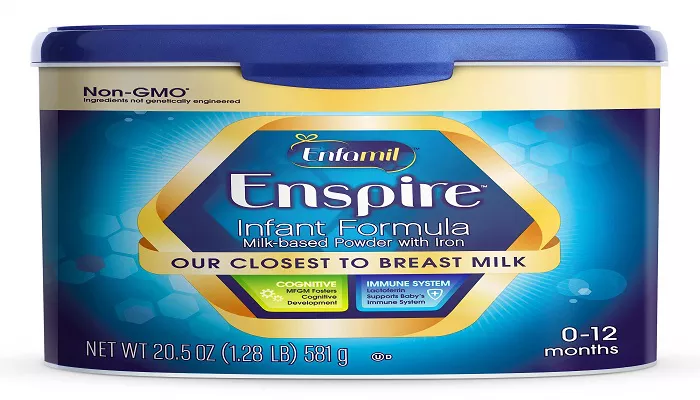Breastmilk is widely recognized as the optimal source of nutrition for infants. It provides a perfect balance of nutrients, antibodies, and bioactive components that support growth, development, and overall health. However, there are situations where breastmilk may not be available or sufficient, necessitating the use of alternatives. This article explores various milk options that can closely mimic the benefits of breastmilk, focusing on their nutritional profiles, suitability for infants, and practical considerations for parents. We will cover infant formula, cow’s milk, goat’s milk, soy milk, and other plant-based alternatives, highlighting their similarities and differences to breastmilk.
Infant Formula: The Closest Substitute
Infant formula is specifically designed to mimic the nutritional composition of breastmilk as closely as possible. It is the most recommended alternative when breastmilk is not available.
Nutritional Composition: Infant formula is fortified with essential nutrients such as proteins, fats, vitamins, and minerals. It contains whey and casein proteins in a ratio similar to breastmilk, making it easier for infants to digest. Additionally, it includes long-chain polyunsaturated fatty acids (LCPUFAs) like DHA and ARA, which are crucial for brain and eye development.
Types of Formula: There are various types of infant formula, including standard cow’s milk-based formula, soy-based formula, and hypoallergenic formula. Standard cow’s milk-based formula is suitable for most infants, while soy-based formula is an option for infants with cow’s milk protein allergy. Hypoallergenic formulas are designed for infants with severe allergies.
Benefits and Considerations: Infant formula provides a reliable source of nutrition, especially for parents who cannot breastfeed. However, it lacks the immune-boosting components found in breastmilk, such as antibodies and live cells. Parents should consult a pediatrician to choose the right formula for their baby.
Cow’s Milk: Not Suitable for Infants Under One Year
Cow’s milk is a common dairy product, but it is not recommended for infants under one year of age.
Nutritional Differences: Cow’s milk contains higher levels of protein and minerals compared to breastmilk, which can strain an infant’s immature kidneys. It also lacks the appropriate balance of nutrients needed for optimal growth and development.
Allergy and Digestion Issues: Cow’s milk protein can cause allergies in some infants, leading to symptoms such as eczema, vomiting, and diarrhea. Additionally, the casein protein in cow’s milk can irritate the intestinal lining, increasing the risk of blood loss and iron deficiency anemia.
When to Introduce: Cow’s milk can be introduced to a child’s diet after they turn one year old. At this age, their digestive system is more mature, and they can better handle the proteins and minerals in cow’s milk. Whole cow’s milk is recommended for children between 12 and 24 months.
Goat’s Milk: A Possible Alternative
Goat’s milk has gained attention as a potential alternative to cow’s milk and breastmilk.
Nutritional Profile: Goat’s milk is similar to cow’s milk in terms of protein and mineral content but has less lactose. It is also easier to digest and less allergenic. However, it lacks sufficient vitamin B12 and folate, which are essential for proper development.
Fortification: To make goat’s milk suitable for infants, it needs to be fortified with vitamins and minerals. Fortified goat’s milk can be considered for infants with mild lactose intolerance, but it is not recommended as a primary milk source for infants under one year.
Practical Considerations: Goat’s milk is not as widely available as cow’s milk and can be more expensive. Parents should consult a pediatrician before introducing goat’s milk to their baby’s diet.
Soy Milk: A Plant-Based Option
Soy milk is a popular plant-based alternative to cow’s milk and breastmilk.
Nutritional Composition: Soy milk is made from soybeans and is fortified with calcium and vitamin D to mimic the nutritional profile of cow’s milk. It contains plant-based proteins and is suitable for infants with cow’s milk protein allergy.
Allergy Considerations: While soy milk is an option for infants with cow’s milk allergies, it is important to note that up to 50% of infants with cow’s milk protein allergy may also react to soy protein. Therefore, it is not recommended as the first alternative for infants with severe allergies.
Usage: Fortified soy milk can be introduced to infants over one year of age as part of a balanced diet. However, it should not be the sole source of nutrition for infants under one year.
Other Plant-Based Milks: Limited Suitability for Infants
Other plant-based milks, such as almond milk, oat milk, and rice milk, have become popular in recent years.
Nutritional Limitations: These plant-based milks generally have lower protein and fat content compared to breastmilk and cow’s milk. For example, almond milk and rice milk are low in calories and essential nutrients needed for infant growth.
Fortification: Some plant-based milks are fortified with calcium and vitamin D to improve their nutritional value. However, they still lack the complete range of nutrients found in breastmilk or infant formula.
Practical Use: Plant-based milks are not recommended as primary milk sources for infants under one year. They can be used in small amounts for toddlers over one year of age, but parents should ensure their child receives sufficient nutrition from other sources.
Conclusion
While breastmilk remains the ideal choice for infant nutrition, there are several milk alternatives available for parents who cannot breastfeed. Infant formula is the closest substitute, providing a balanced and fortified source of nutrition. Cow’s milk and goat’s milk can be considered for infants over one year of age, but they require careful consideration due to their nutritional differences and potential allergy risks. Plant-based milks like soy milk, almond milk, and oat milk have limited suitability for infants due to their lower nutritional content. Parents should always consult a pediatrician to choose the best milk alternative for their baby, ensuring it meets their child’s specific nutritional needs and health requirements.
Related topics


